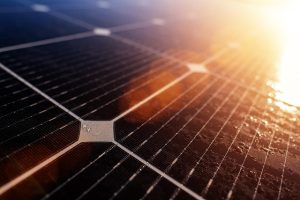
Solar power has become an increasingly popular energy source. According to the Solar Energy Industries Association (SEIA), it accounted for 55% of all new grid-supplied electricity in 2023 — a number that’s expected to grow even higher in the years to come.
If you’re thinking about installing solar panels, however, you might be wondering whether they work in the shade. Solar panels require sunlight to generate electricity, so conventional wisdom may lead you to believe that they don’t work in the shade.
Yes, Solar Panels Work in the Shade
Solar panels will still work in the shade. Whether it’s clouds or shadows from a nearby tree or structure, they will continue to generate electricity.
There are different types of solar panels, such as monocrystalline, polycrystalline and thin film. The most common type, monocrystalline solar panels are made of a single silicon crystal. Polycrystalline solar panels, on the other hand, are made of multiple silicon crystals, and thin film solar panels are made of a thin layer of photovoltaic material.
Regardless of the type, all solar panels are made of a special type of material that reacts to sunlight. When sunlight strikes the surface of a solar panel, the photovoltaic material will release electrons. These flowing electrons will create a current that’s captured by the connected wiring, resulting in electricity.
The Impact of Shade
They may still work, but solar panels are typically less efficient in the shade. As mentioned above, solar panels rely on sunlight to generate electricity. Sunlight will release the electrons within their photovoltaic material so that they can generate an electrical current. When shade is cast over a solar panel, it will receive less sunlight and, thus, generate less electricity.
Common sources of shade that can affect solar panels include the following:
- Overhanging branches
- Nearby tall trees
- Neighboring homes or buildings
- Adjacent walls
- Telephone poles
- Overhead power lines
- Chimneys
- Natural landscape features
- Elevated terrain
- TV antennas
- Satellite dishes
- Passing clouds
- Snow accumulation
How much of an impact does shade have on solar panels exactly? Research shows that solar panels are about 20% to 60% less efficient in shade than in direct sunlight.
Solutions for Shade
You can maximize the efficiency of your solar panels by installing them in areas where there’s little or no shade. This is why many homeowners and business owners prefer roof-mounted solar panels over ground-mounted panels. When mounted on the roof, solar panels typically receive more direct sunlight, resulting in higher efficiency ratings.
You can also use microinverters to deal with shade. Like standard inverters, microinverters are designed to convert DC power to AC power. Microinverters, however, only work with a single solar panel. Each panel in your installation will need its own microinverter. But with microinverters, if only one panel is shaded, it won’t affect the efficiency of the other panels.
